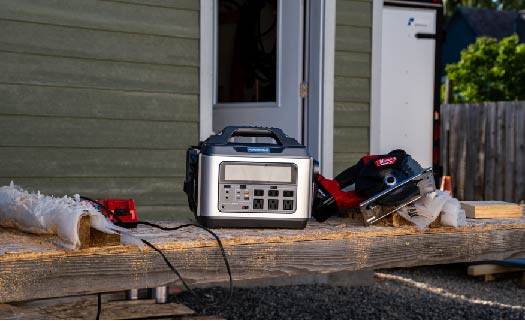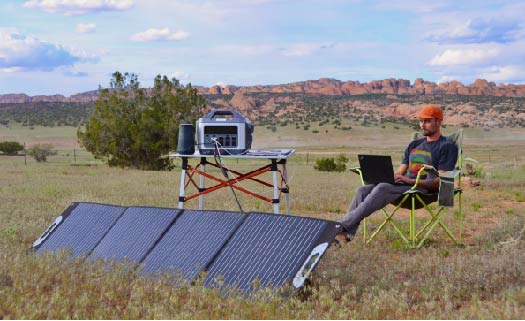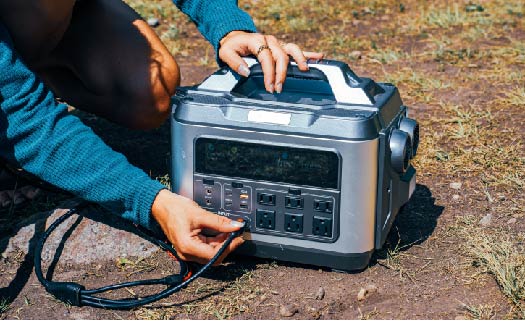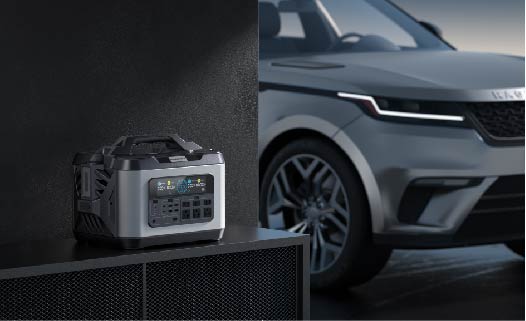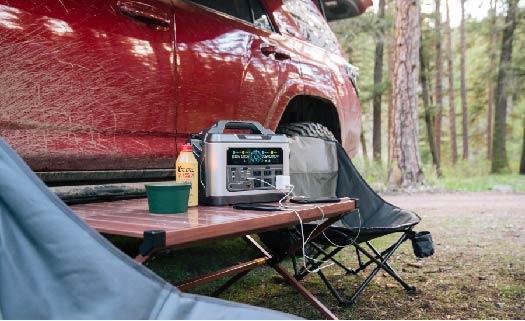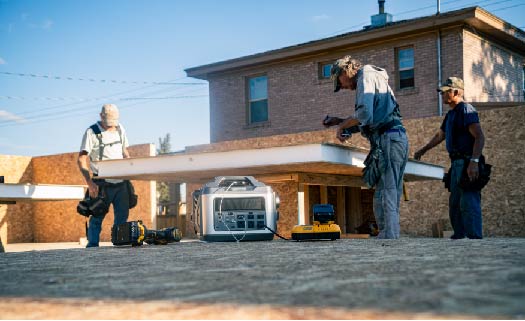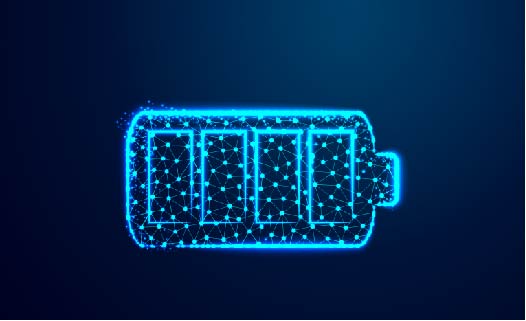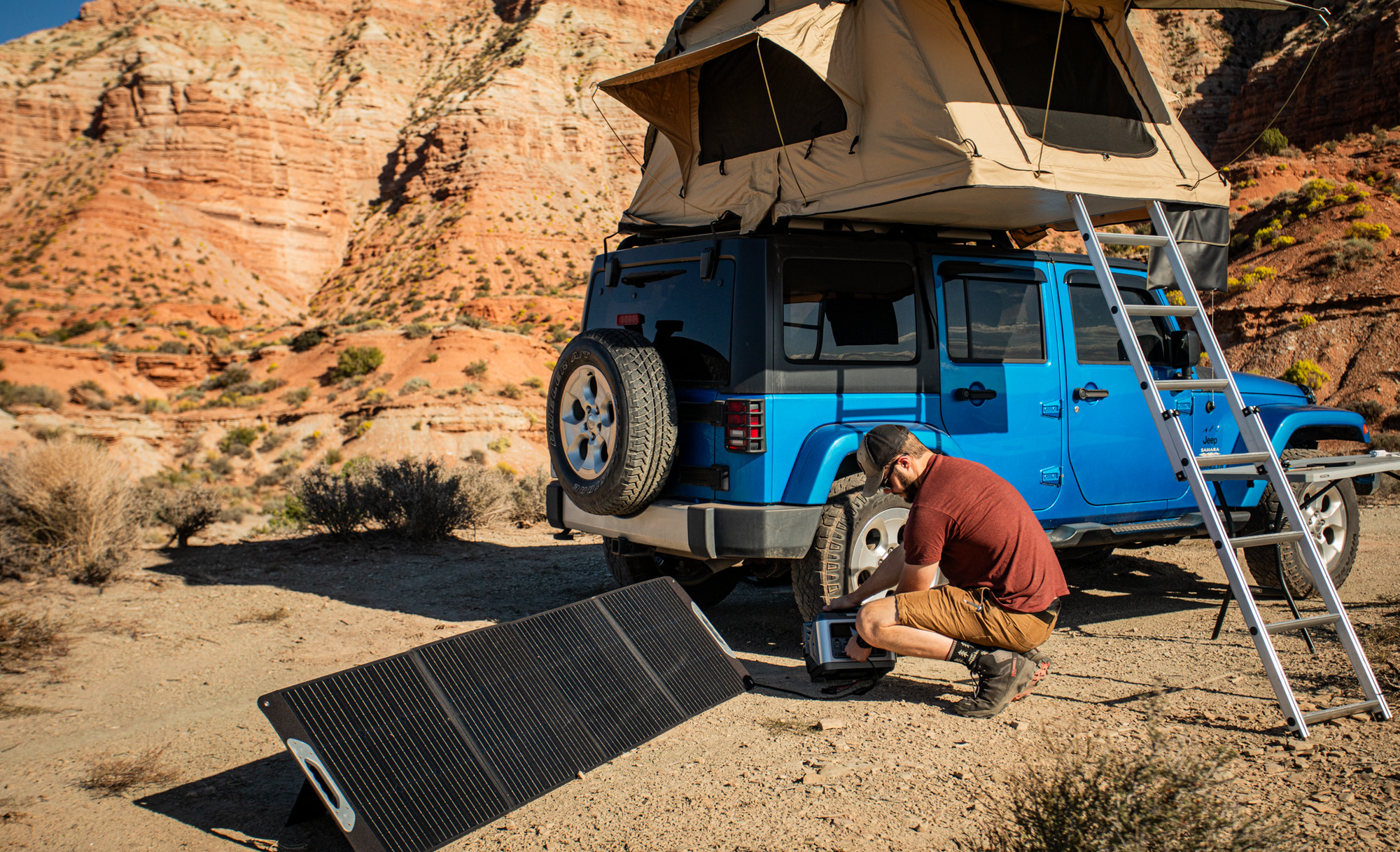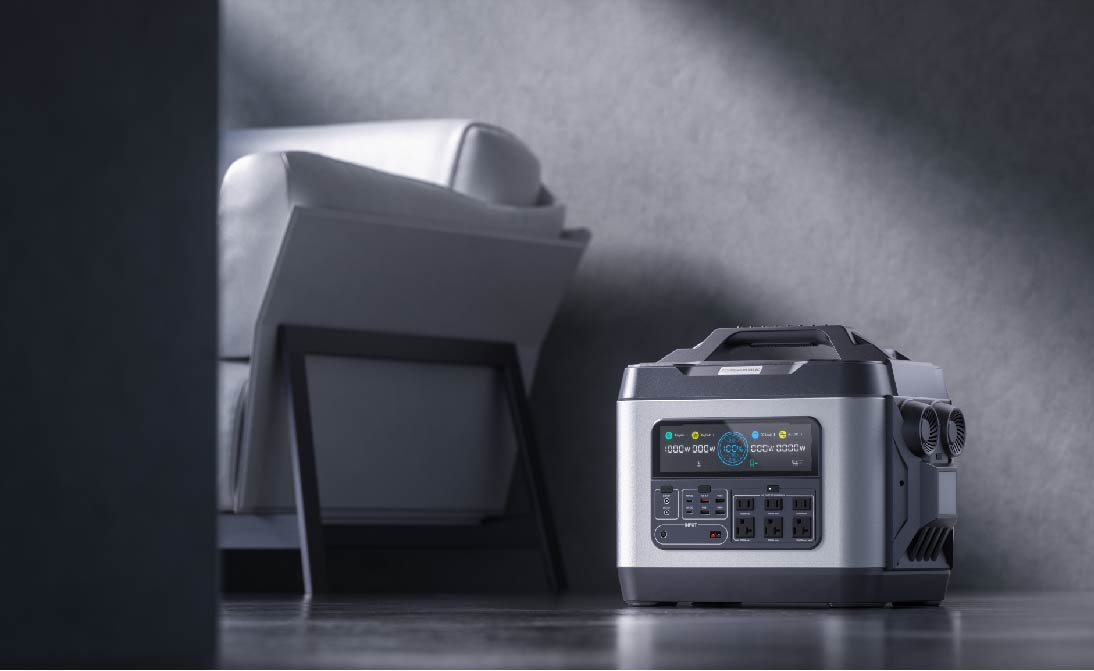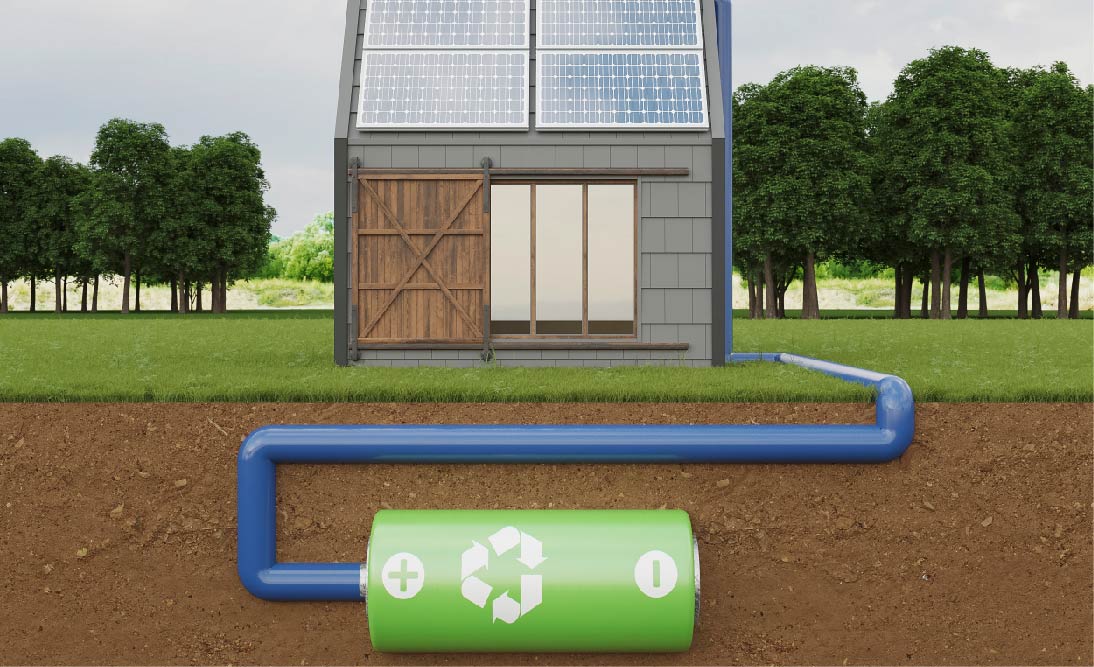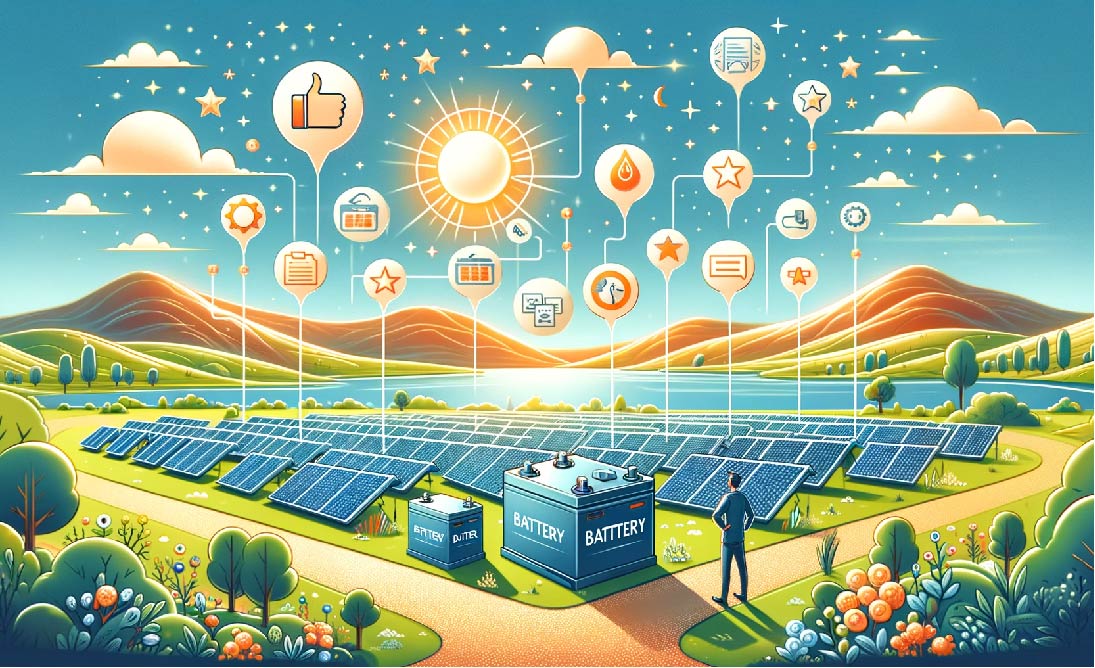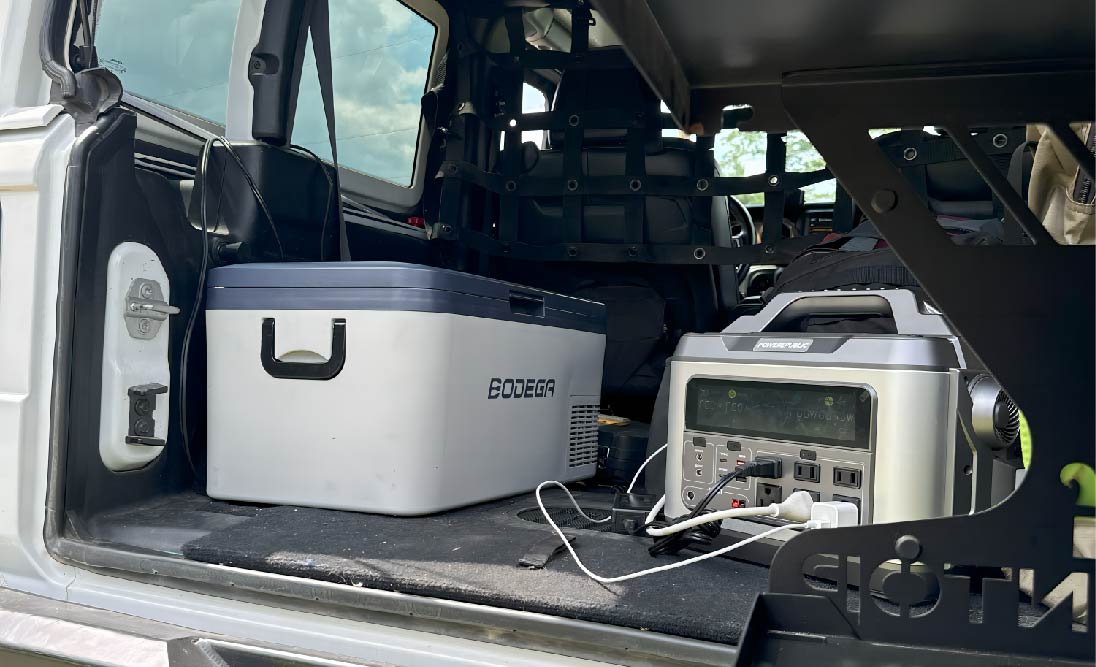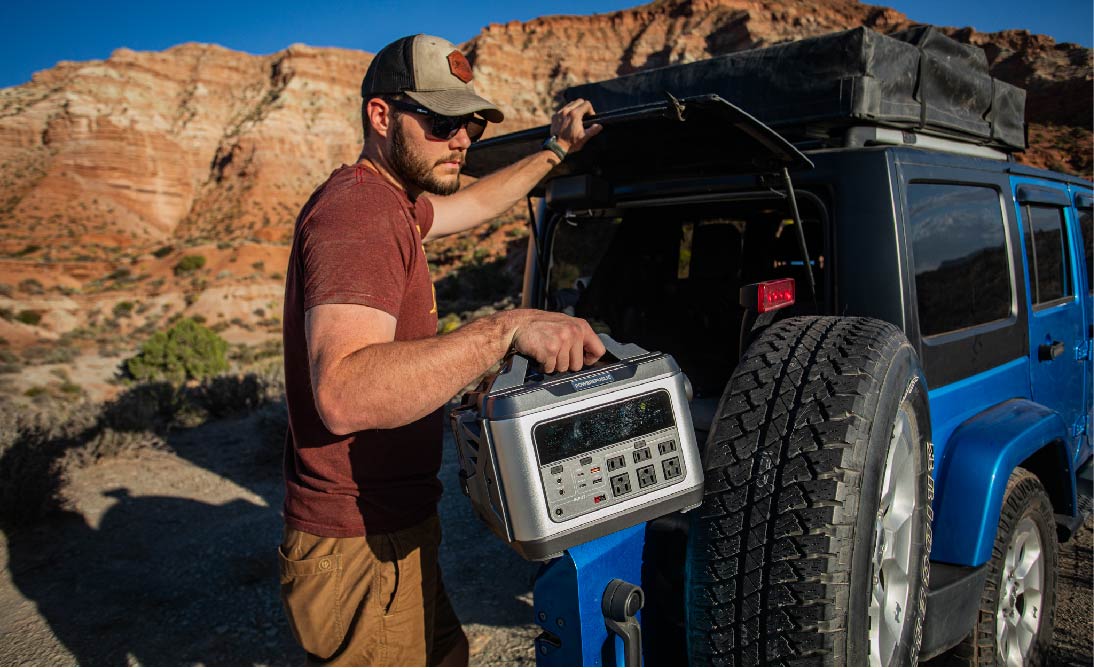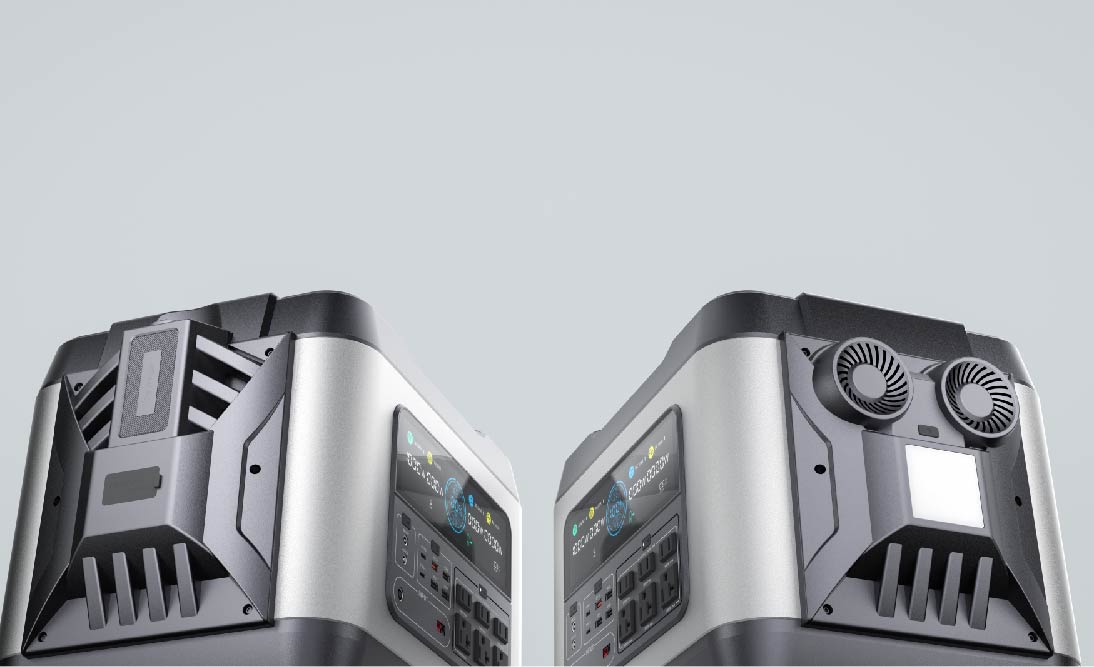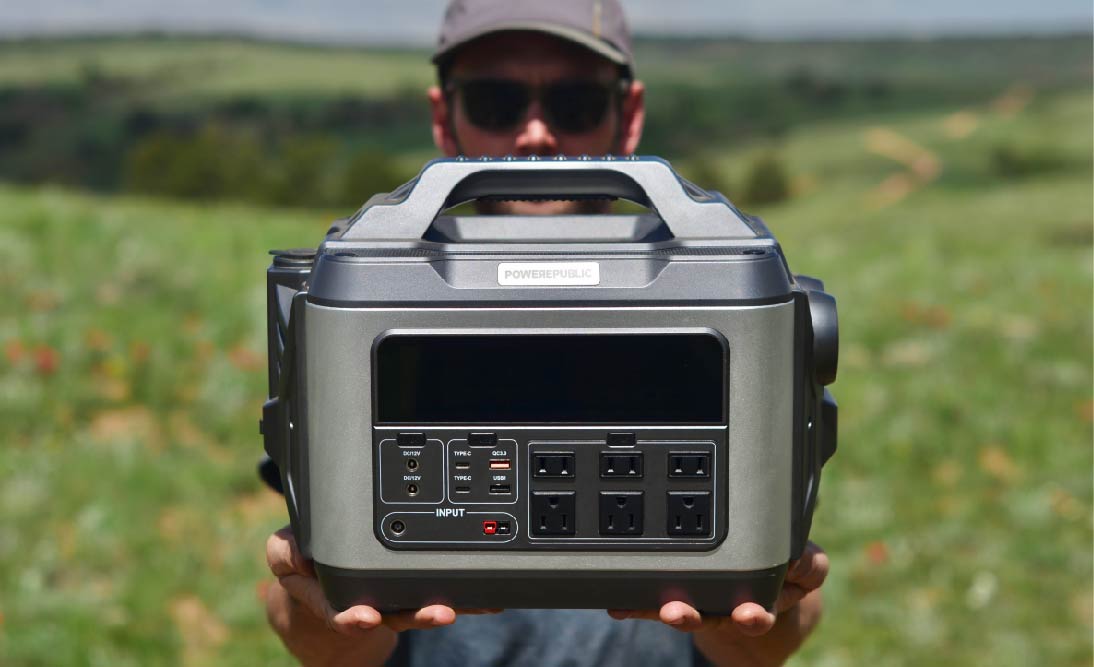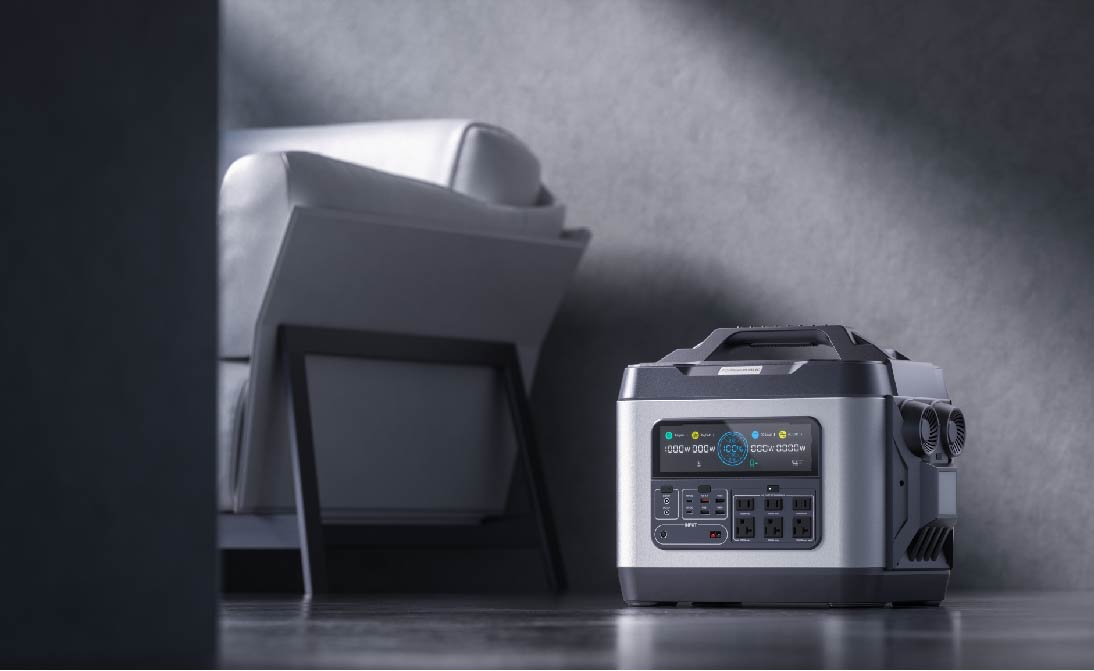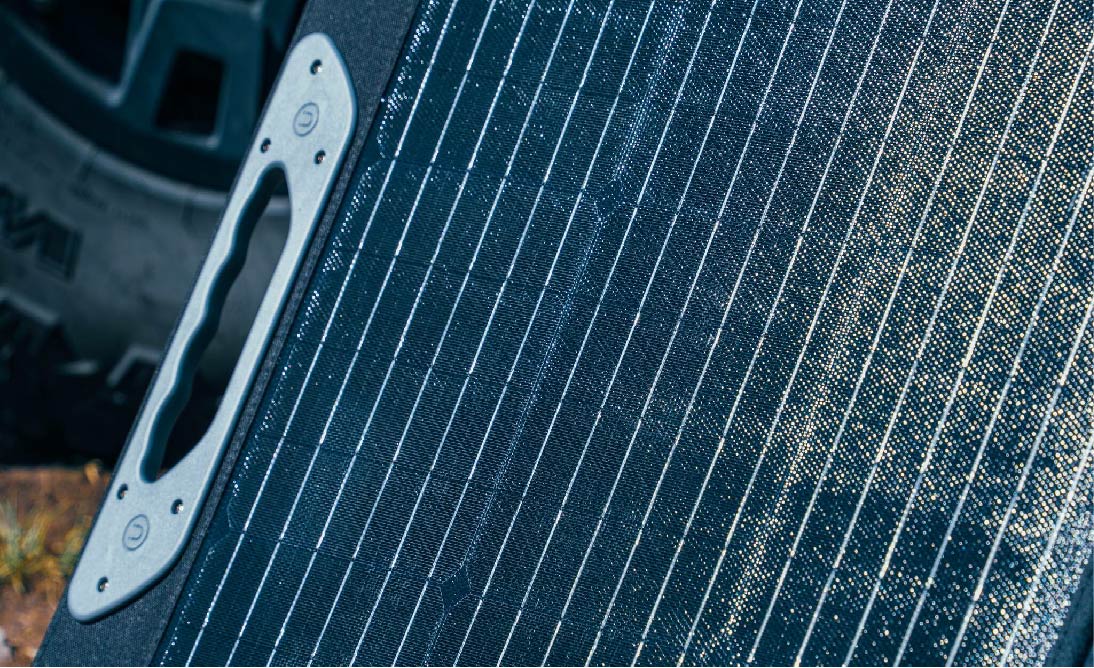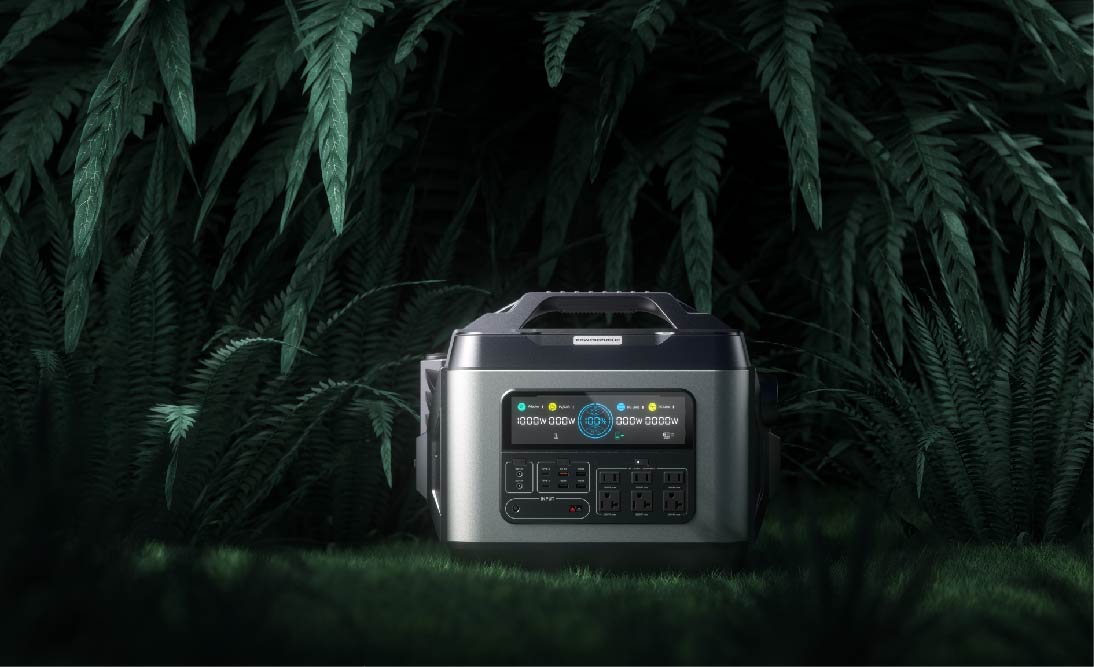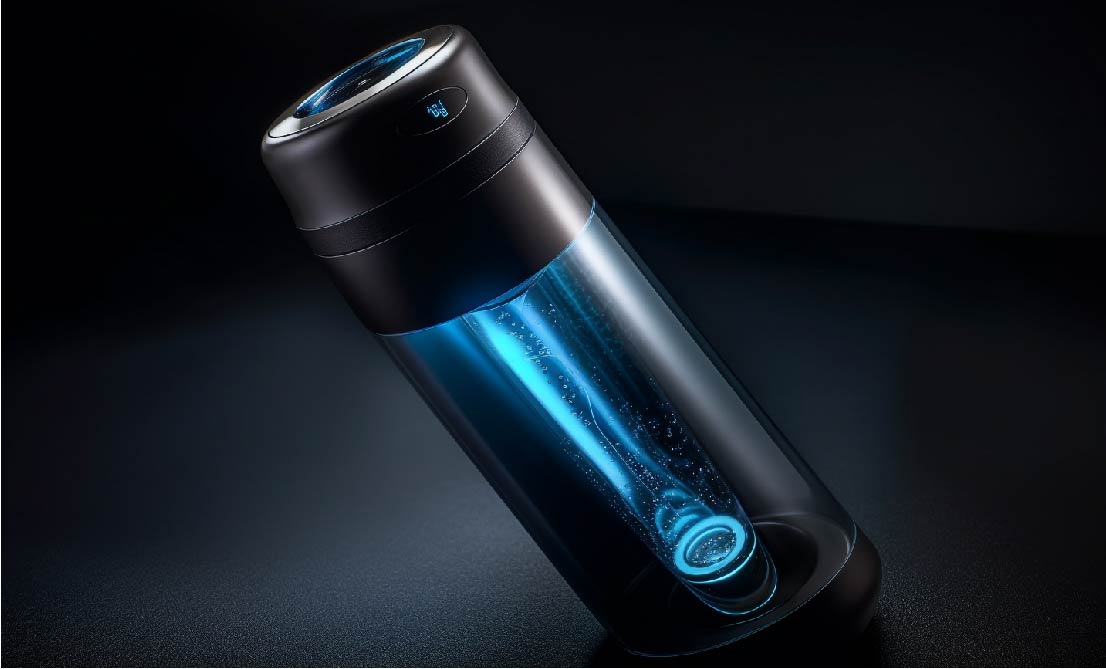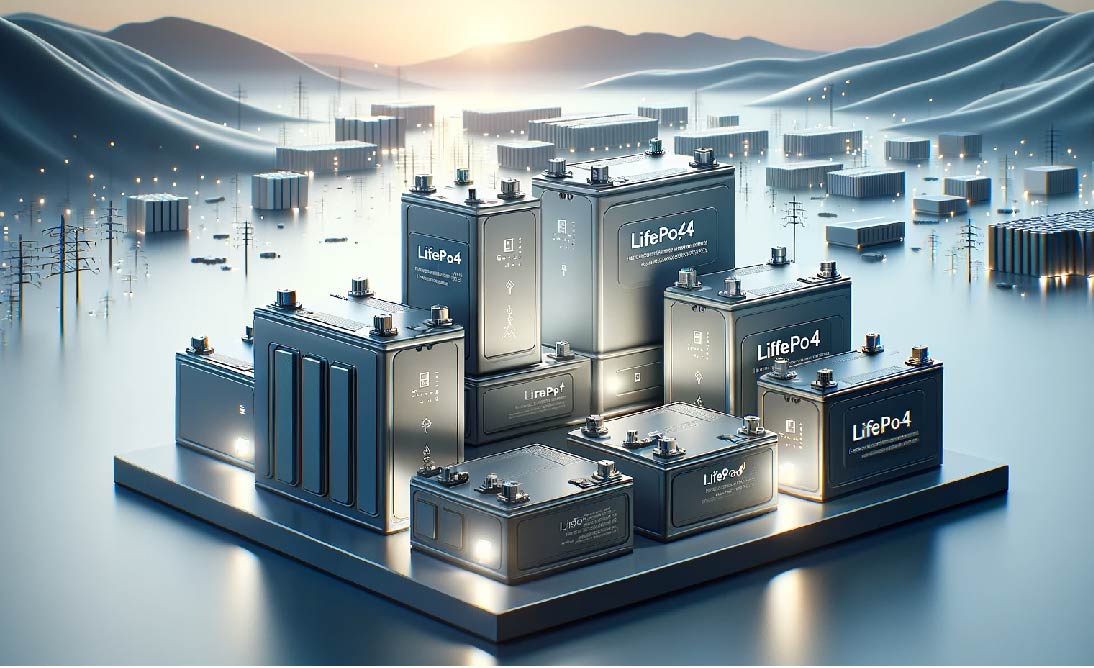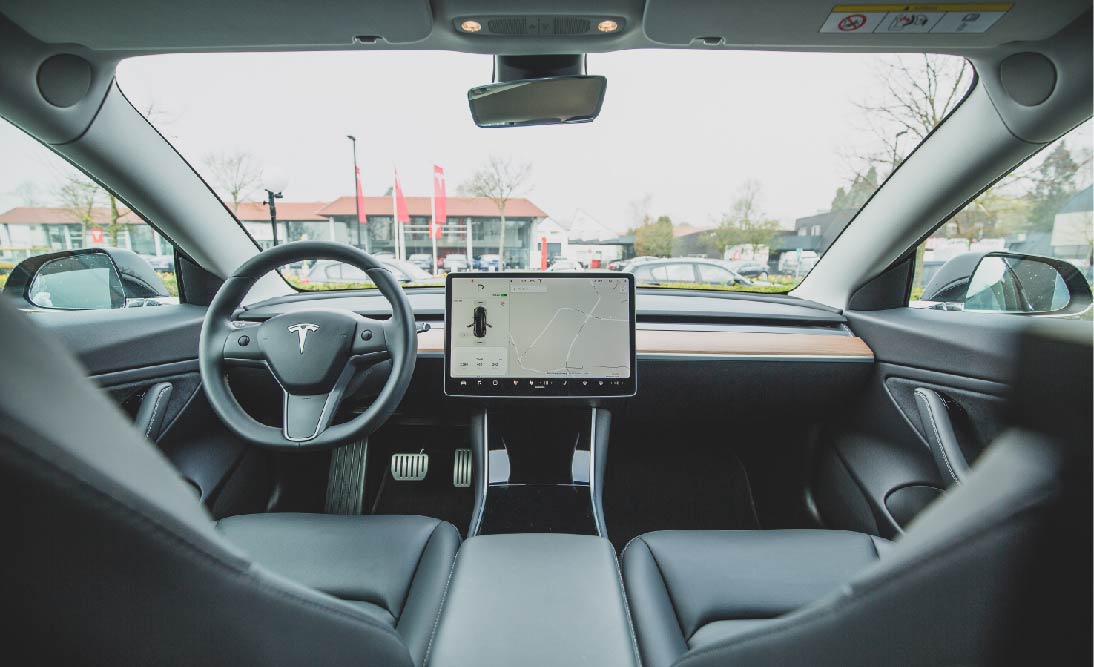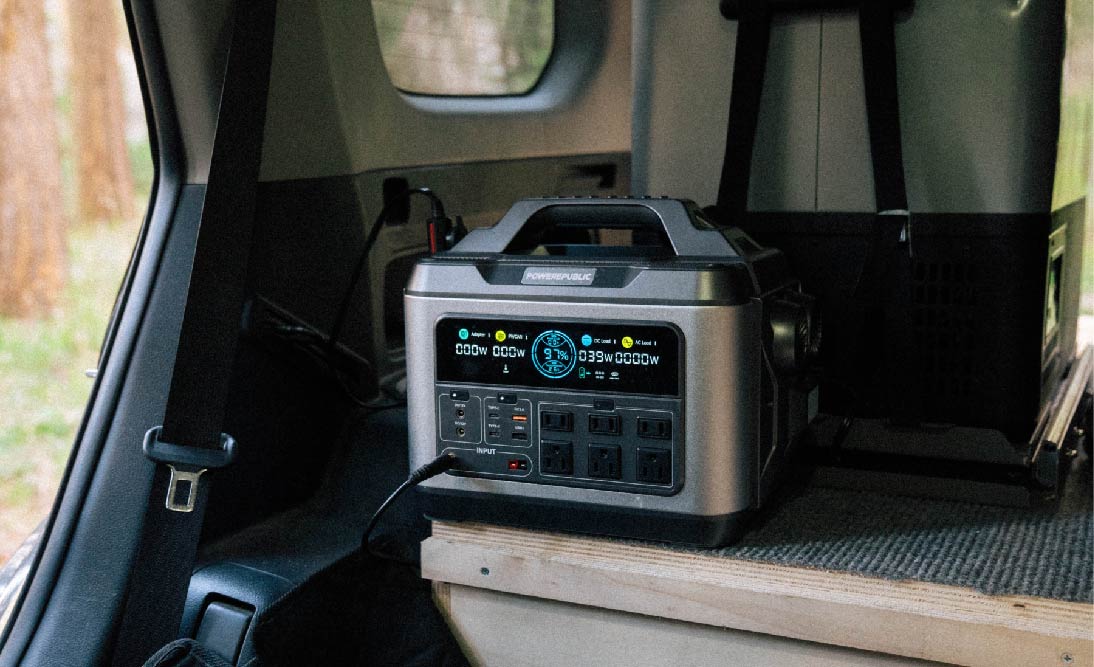Table of Contents:
Navigating the intricate world of battery technology, particularly when comparing LiFePO4 vs Lithium-Ion batteries, can be a daunting task for users seeking reliable power solutions. Each type presents distinct advantages and challenges, making the choice crucial for specific applications.
This comprehensive guide demystifies the differences and similarities between these two popular battery types. Whether you're an outdoor enthusiast seeking a portable power station, a homeowner in need of a reliable backup power system, or simply looking to understand the best battery option for your needs, understanding the key features of LiFePO4 and Lithium-Ion batteries is essential. From their safety profiles and environmental impact to their energy density and longevity, this article delves into what sets these batteries apart and guides you in making an informed decision. With insights into POWEREPUBLIC's range of portable power stations that harness these technologies, you'll be equipped to choose the right battery solution that aligns with your lifestyle, whether for outdoor adventures or ensuring home energy security.
What are LiFePO4 Batteries?

LiFePO4 batteries, often referred to as Lithium Iron Phosphate batteries, represent a notable development in the realm of lithium-ion technology. These rechargeable batteries are acclaimed for their enhanced characteristics and performance. Their key characteristics include:
-
Chemistry and Stability: LiFePO4 batteries use lithium iron phosphate as the cathode material and a graphitic carbon electrode with a metallic backing as the anode. This chemistry is more thermally and chemically stable than lithium-ion batteries that use other cathode materials. This stability enhances safety by reducing the risk of thermal runaway and fire.
-
Long Life Cycle: These batteries have a very high life cycle, often more than 2000 charge-discharge cycles, with minimal degradation.
-
High Safety: Due to their chemical stability, LiFePO4 batteries are among the safest lithium-ion batteries. They are more resistant to overcharging, high temperatures, and physical damage.
-
Environmentally Friendly: They are more environmentally benign than other lithium-ion batteries, as they do not contain harmful elements like cobalt or lead.
-
Energy Density: While they have a lower energy density compared to other lithium-ion chemistries, such as LiCoO2 (Lithium Cobalt Oxide), their safety and longevity features often outweigh this drawback.
-
Wide Temperature Range: LiFePO4 batteries can operate under a wider temperature range, making them suitable for use in various climates.
-
Cost: Initially, they can be more expensive than traditional lithium-ion batteries, but their longer lifespan can make them more cost-effective in the long term.
LiFePO4 batteries are widely used in electric vehicles, solar energy storage, portable electronics, and backup power systems due to their unique combination of longevity, stability, and safety.
What are Lithium-ion Batteries?

Lithium-ion (Li-ion) batteries are a type of rechargeable battery that has become ubiquitous in modern electronics due to their high energy density, low self-discharge, and long cycle life. They are used in a wide range of applications, from powering portable electronic devices like smartphones and laptops to providing energy storage for electric vehicles and renewable energy systems. Here's an overview of their key characteristics and functioning:
-
Basic Composition: A lithium-ion battery consists of three primary components: Cathode - The positive electrode, typically made from a lithium metal oxide. Anode- The negative electrode, usually made from graphite. Electrolyte - A lithium salt solution in an organic solvent that facilitates the movement of lithium ions between the cathode and anode during charging and discharging.
-
Working Principle: When the battery is charging, lithium ions move from the cathode to the anode, storing energy in the process. During discharge (when the battery is in use), these ions flow back to the cathode, releasing the stored energy as electrical power.
-
Energy Density: Li-ion batteries have a high energy density, meaning they can store a large amount of energy in a relatively small amount of space. This makes them particularly useful for portable electronics.
-
Long Cycle Life: They can be charged and discharged hundreds to thousands of times before their capacity significantly decreases, contributing to their long service life.
-
Low Self-Discharge: These batteries lose their charge relatively slowly when not in use, which is a significant advantage over older rechargeable battery technologies like nickel-cadmium (NiCd).
-
No Memory Effect: Unlike some other rechargeable batteries, Li-ion batteries do not suffer from a "memory effect" where they lose their maximum energy capacity if they are repeatedly recharged after being only partially discharged.
-
Safety Concerns: Li-ion batteries can pose safety risks, especially if damaged or improperly handled. Issues such as overheating, short-circuiting, or overcharging can lead to thermal runaway, potentially causing fires or explosions.
-
Environmental Considerations: The production and disposal of Li-ion batteries raise environmental concerns. The mining of lithium and other metals used in these batteries can have significant ecological impacts, and the recycling of these batteries is challenging but improving.
Li-ion batteries continue to evolve, with ongoing research focusing on improving their energy density, safety, lifespan, and environmental footprint. Materials science and battery technology advances aim to address these challenges, further enhancing the efficiency and sustainability of Li-ion batteries.
LiFePO4 VS. Lithium-Ion: Similarities and Differences

LiFePO4 (Lithium Iron Phosphate) and Lithium-Ion batteries, while both based on lithium technology, have distinct characteristics that make them suitable for different applications. Understanding their similarities and differences is key to choosing the right type of battery for a specific need.
Similarities
-
Lithium-Based: Both are lithium-based rechargeable batteries, utilizing lithium ions moving between the anode and cathode to store and release energy.
-
Rechargeable: They can be recharged many times, making them suitable for long-term use in various applications.
-
Usage in Electronics and Electric Vehicles: Both types are used in electronic and electric vehicles, though their specific applications within these domains might differ.
-
Energy Efficiency: Both have high energy efficiency compared to older battery technologies like Nickel-cadmium or Nickel-Metal Hydride.
-
Low Self-Discharge: They exhibit a low self-discharge rate compared to other rechargeable batteries.
Differences
Cathode Material:
-
LiFePO4 batteries use lithium iron phosphate as the cathode material.
-
Standard Lithium-Ion batteries use various materials like lithium cobalt oxide (LiCoO2) or lithium manganese oxide (LiMn2O4).
Thermal Stability and Safety:
-
LiFePO4 is thermally stable and less prone to thermal runaway, making it safer.
-
Standard Lithium-Ion batteries have higher risks of overheating and are more susceptible to damage if overcharged.
Lifespan:
-
LiFePO4 batteries typically have a longer lifespan, often over 2000 charge-discharge cycles.
-
Standard Lithium-Ion batteries usually have fewer cycles before significant degradation occurs.
Energy Density:
-
LiFePO4 has a lower energy density, meaning it stores less energy for the same volume or weight.
-
Standard Lithium-Ion batteries have a higher energy density, which is crucial for applications where size and weight are critical factors.
Environmental Impact:
-
LiFePO4 is often considered more environmentally friendly due to the absence of toxic metals like cobalt.
-
Standard Lithium-Ion batteries, especially those using cobalt, have greater environmental concerns related to mining and disposal.
Cost:
-
Initially, LiFePO4 can be more expensive, but its longer lifespan may offer better long-term value.
-
Standard Lithium-Ion batteries might have a lower upfront cost but may need to be replaced more frequently.
Voltage:
-
LiFePO4 batteries typically have a lower nominal voltage (about 3.2V per cell).
-
Standard Lithium-Ion batteries have higher nominal voltages (around 3.6V to 3.7V per cell).
Applications:
-
LiFePO4 is favored in applications where longevity, safety, and stability are crucial, such as in solar energy systems, electric vehicles, and backup power.
-
Standard Lithium-Ion batteries are preferred in consumer electronics, drones, and applications where high energy density and lighter weight are more critical.
Overall, while both LiFePO4 and Lithium-Ion batteries share the basic principles of lithium-based rechargeable technology, their differences in materials, safety, lifespan, energy density, and environmental impact make them suitable for different applications. The choice between them often depends on the specific requirements of the application, such as the need for high energy density, long life, safety, or environmental considerations.
POWEREPUBLIC Portable Power Stations

POWEREPUBLIC has thoughtfully engineered two of its premier models, the T306 and T1200 portable power stations, utilizing the advanced capabilities of lithium-ion batteries. The incorporation of these batteries is a testament to POWEREPUBLIC's commitment to meeting the dynamic needs of outdoor enthusiasts, especially campers. Lithium-ion batteries are a strategic choice for these models, primarily due to their ability to significantly reduce the overall weight of the power stations. This feature is crucial for campers who often traverse diverse and challenging outdoor landscapes. The lightweight nature of the T306 and T1200 models ensures ease of transport, allowing users to enjoy their outdoor experiences without the encumbrance of heavy equipment.
Moreover, the integration of lithium-ion technology in these models goes beyond just lightweight benefits; it represents a harmonious balance between compactness and robust functionality. Both the T306 and T1200 are designed to offer dependable power solutions in a sleek, user-friendly package, aligning with POWEREPUBLIC's ethos of creating products that are both practical and adaptable to various outdoor settings.
In contrast, POWEREPUBLIC’s T2200 and T3000 models are engineered with LiFePO4 (Lithium Iron Phosphate) batteries, aligning with their intended usage scenarios. These models are predominantly used during power outages, necessitating a battery solution that can withstand frequent and rigorous use. LiFePO4 batteries are renowned for their durability and extended lifespan, capable of up to 3000 charge cycles. This makes the T2200 and T3000 models ideal for emergency power situations or as dependable home backup power systems.
The focus on LiFePO4 batteries in these models underscores a strategic pivot towards prioritizing endurance and long-term reliability. While the T2200 and T3000 may not emphasize portability as heavily as their lithium-ion counterparts, they excel in providing consistent, long-lasting power. This thoughtful differentiation in battery technology across its product line illustrates POWEREPUBLIC’s dedication to delivering specialized solutions that cater to the diverse requirements of its customer base, whether for outdoor adventures or home energy security.
Overall, by offering models powered by both lithium-ion and LiFePO4 batteries, POWEREPUBLIC effectively addresses the nuanced needs for portability, efficiency, resilience, and reliability in power storage solutions.
Final Thoughts
When comparing LiFePO4 vs lithium-ion batteries, each stands out for its specific advantages and ideal applications. LiFePO4 batteries excel in safety, stability, and longevity, making them suitable for systems where durability and a high number of charge cycles are crucial, like home backup power. Conversely, lithium-ion batteries, with their higher energy density and lighter weight, are optimal for portable devices and applications where compactness is essential.
The choice between LiFePO4 and lithium-ion is critical and depends on the application's specific needs. For outdoor enthusiasts and campers, lightweight and efficient lithium-ion batteries are preferable, as seen in POWEREPUBLIC's portable power stations. In contrast, for more stationary, high-usage scenarios like power outages, LiFePO4 batteries are the better option due to their extended lifespan and robustness.
In summary, understanding the key differences and strengths of LiFePO4 vs lithium-ion batteries is vital for making informed decisions in power management and device design, ensuring the right balance of portability, efficiency, and durability.









